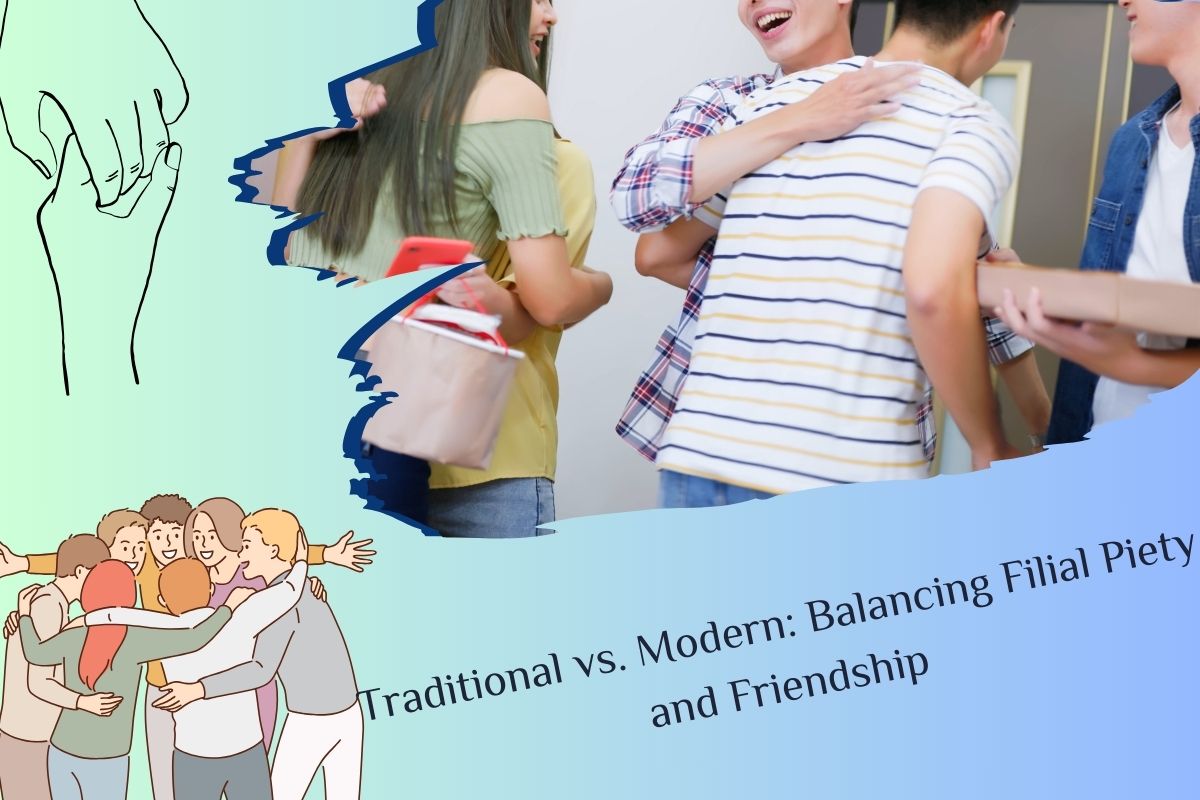Traditional VS Modern: Balancing Filial Piety and Friendship
You may be aware of how Chinese people hold blood relations in high regard. Since ancient times, the tradition of visiting relatives and friends during holidays has a long history. However, nowadays, more and more young people are no longer mechanically fulfilling the obligation of visiting relatives. Instead, they choose to visit some important relatives or close friends they regularly interact with on normal days. For them, close friends have become like family, and this rejection of the traditional way of visiting relatives is becoming increasingly popular. This article will introduce you to this intriguing phenomenon!

In the past, the older generations were fond of visiting relatives due to a specific societal background. During that time, when agriculture was the mainstay and transportation was underdeveloped, people rarely left their hometowns. Coupled with limited educational opportunities, families often relied on mutual help among relatives亲戚(qīn qi) for various matters such as building houses, holding ceremonies, etc. This strong sense of mutual assistance, laden with "human warmth," was crucial during those times, uniting everyone and amplifying their strength.
亲戚 (qīn qi), noun, relative
Examples:
- Is he any relation to you?
他是你的什么亲戚吗?
tā shì nǐ de shén me qīn qi mɑ ? - It is a good time for people to visit relatives and friends.
这是人们拜访亲戚和朋友的好时机。
zhè shì rén men bài fǎnɡ qīn qi hé pénɡ you de hǎo shí jī 。
Therefore, in the mindset of the older generation, regardless of when, especially during the festive seasons, visiting relatives became a fixed tradition, almost an indispensable part of life, essential for maintaining family connections and unity.
Why does the concept of visiting relatives fade?
For the older generation, traditional holidays deem visiting relatives an essential emotional link. However, the new generation of young people may have a different perspective. While they value familial bonds, in the fast-paced modern life, they cherish personal resting time and opportunities for recharging. During holidays, they may prefer to stay home with family, savoring the rare moments of tranquility, or use this time for travel and relaxation.
To them, maintaining family ties is not restricted to traditional gatherings and ceremonial obligations. Gifting and expressing blessings also reflect care and respect for family members. This difference reflects the changing times, where people have different understandings and practices regarding family and kinship. Each generation is finding balance in their own way, striving to build harmonious relationships between tradition and modernity.

Unlike relationships with relatives, friendships stem from personal choices and mutual attraction, allowing young people to experience more freedom and comfort. Among friends who share common interests and values, they find resonance and understanding. Especially when faced with differing mindsets or generation gaps, communication among friends tends to be smoother and more heartfelt.
On the other hand, relationships with relatives are often determined by blood ties or marriage, sometimes accompanied by unavoidable social obligations. This sense of responsibility and constraint may prompt some young people to seek escape and find unrestrained and genuine companionship within their circle of friends. Ultimately, between familial ties and friendships友情(yǒu qínɡ), young people often cherish the warmth and support brought by the latter.
友情 (yǒu qínɡ), noun, friendship
Examples:
- Your friendship is very important to me.
你的友情对我非常重要。
nǐ de yǒu qínɡ duì wǒ fēi chánɡ zhònɡ yào 。 - Friendship is never change.
永不改变的是友情。
yǒnɡ bù ɡǎi biàn de shì yǒu qínɡ 。
Traditional Values of Loyalty and Gratitude
In the rich and profound culture of China, "loyalty and gratitude" have always been regarded as the cornerstone of interpersonal relationships, emphasizing deep personal connections and strong emotional ties. "Affection" not only includes blood ties but also encompasses a wide range of relationships, with friends holding significant positions. Ancients proclaimed, "Within the four seas, all are brothers," vividly illustrating the broad-minded view of friendship among the Chinese. Therefore, when young people choose to establish closer ties with friends, it is not a disregard for familial bonds but rather another form of understanding and practice of "affection."Through interactions with like-minded friends, they find emotional resonance and spiritual solace, which is also a modern expression of "affection."

In the fast-paced life, people yearn to find balance, cherishing traditional familial bonds while valuing the sincerity and support of friendships. Whether through the traditional practice of visiting relatives or modern companionship among friends, various expressions of the traditional values of loyalty and gratitude characterize today's society. Let us find our own way of living between tradition and modernity, cherishing both family and friendship, collectively maintaining warm and harmonious relationships!